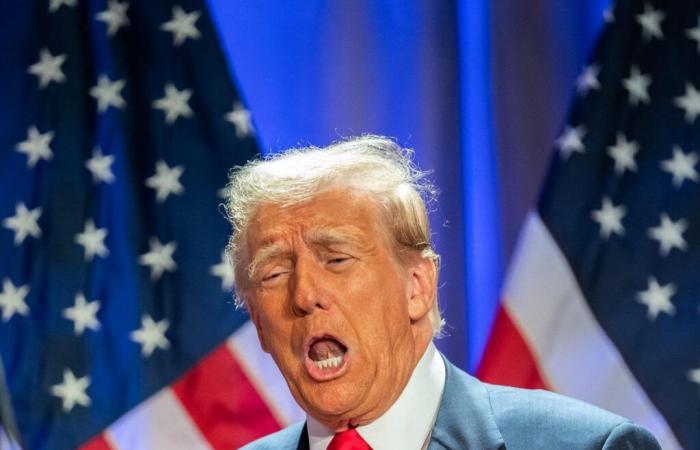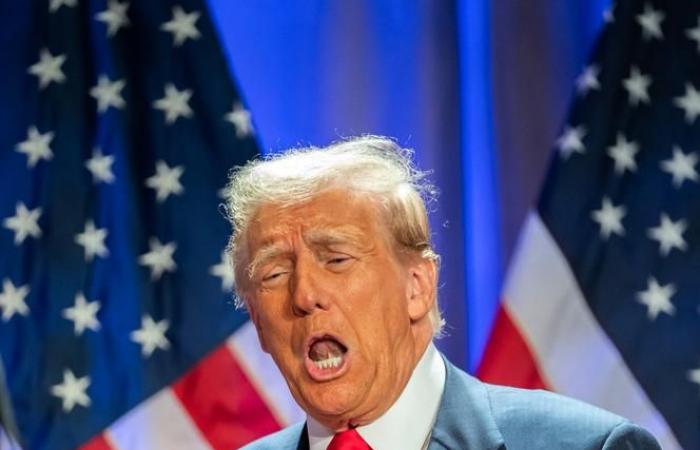With the return of Donald Trump, what will happen to African exports to the American market, currently exempt from taxes?
The question is giving cold sweats to citrus producers in South Africa, a sector which fears the non-renewal of customs exemptions. The fruits are among 1,800 products from 32 African countries benefiting from tariff preferences thanks to the African Growth and Opportunity Act (AGOA). South African, Kenyan, Nigerian and Ghanaian companies benefit the most from these provisions. With Donald Trump promising to impose tariffs of at least 10% on all imports into the United States, the renewal of AGOA – which is due to expire in 2025 – by Congress remains uncertain as Republicans now hold the majority in both Houses.
“We need that competitive edge”Justin Chadwick, head of the South African Citrus Growers Association (CGA), told Agence France-Presse (AFP): “If South Africa were excluded from AGOA, thousands of rural jobs could be affected and more than a billion rand [environ 52 millions d’euros] export revenue could be lost. » A producer located in the Eastern Cape province believes that if AGOA was not renewed this would “would kill” its activity. This South African company, wishing to remain anonymous, says it employs more than 3,000 people and exports an average of 350 containers of sorbets per year to the United States.
Also read the decryption | Africa far from Donald Trump’s priorities
Read later
Automotive is another sector that could be affected by the abandonment of AGOA, although some companies are betting that American consumers will accept higher prices. “I don’t foresee any major change in Americans’ purchasing habits when it comes to our products”estimates Ken Manners, managing director of SP Metal Forgings Group, a South African company exporting automobile parts to the United States. Even if customs duties were imposed, “this would not change much in our ability to remain a competitive supplier”he assures: “The type of products we supply in the United States are very difficult to find elsewhere. »
“We don’t know how far he will go”
Whether AGOA is renewed or not, its impact is limited domestically, analysts say. “We’re not even talking about 1%” of the South African economy, judges economist Dawie Roodt, based in Johannesburg: “But, in an environment where the economy is growing practically or very little, everything counts and adds up. » “Trump and his economic policies are unpredictable, volatile and erratic. We don’t know how far he will go.”notes Ronak Gopaldas of London-based consultancy Signal Risk: “An effective strategy is to expect the worst and hope for the best. »
Kenyan and Ghanaian companies also benefit from AGOA, particularly in the textile industry. Mukhisa Kituyi, a Kenyan politician who served as secretary-general of the United Nations Conference on Trade and Development (UNCTAD), believes that the next US administration could lean towards a renegotiation of AGOA rather than a withdrawal. “What America wants is to tighten what it calls “third country of origin rules””he told AFP. This would, for example, prevent companies from importing textiles from China or India, sewing them in Africa, then selling them in the United States as African clothing.
Read also | Article reserved for our subscribers Between South Africa and the United States, trade to soften diplomatic relations
Read later
Another question mark concerns mineral exports from the Democratic Republic of Congo (DRC), Zambia and Angola. Although these products are not eligible for AGOA, Central African countries have received special attention and investment under President Joe Biden. “Will these relationships continue or will we see a step backwards, a radical overhaul of some of the advances made? »asks Ronak Gopaldas. Trump “will probably ignore Africa”according to Dawie Roodt, unless countries “catch his attention for good or bad reasons”.
Geopolitical positions could be a determining and damaging factor for a number of African governments that have shown support for Russia and China or criticized Israel. South Africa, in particular with its proceedings against Israel before the International Court of Justice (ICJ) for genocide, will work “on a thread”Ronak Gopaldas analysis, especially “if the United States makes a clarification of the “with us or against us” type”.







